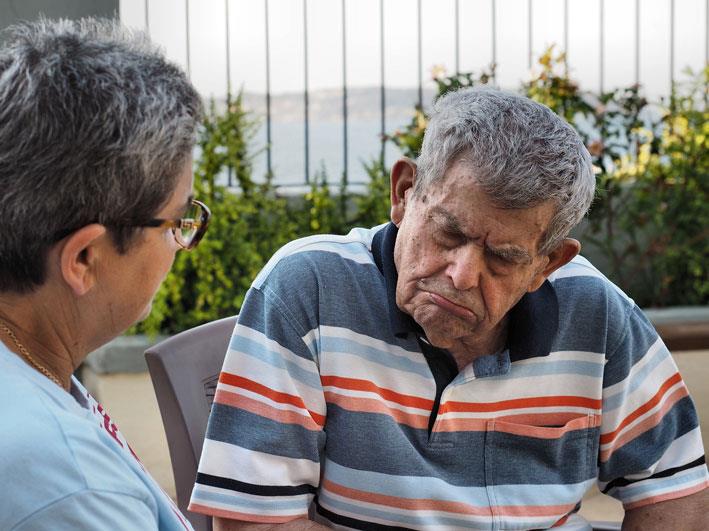I meet Marianne at a retreat centre in Mellieha where we settle down for a chat in the yard overlooking the sea. It is peaceful apart from the chitter-chatter of a few elderly people. I ask Marianne where her father is, expecting her to say he is his room as no one around fit the description of a 90-year-old having had dementia for 31 years. She points out a man deep in conversation and I am amazed at how well he looks.
Marianne explains that when he was first diagnosed he could not talk and was completely bed-ridden and incontinent. Today her father speaks and holds conversations, can do mathematics, and can sing ghana. Doctors are bewildered by his amazing progress. She says that once her father passes away she wishes that a post-mortem is performed so perhaps others can benefit.
Thirty-one years ago, when Annunzjato was only 59, Marianne and her family started realising that her father was starting to withdraw into a world of his own, not making eye contact or communicating. They first took him to their family doctor who could not diagnose him so they took him to a psychiatrist and further specialists.
The specialist said a CAT scan was necessary to determine if there were any growths “but if it results there is nothing then you can say your father is an idiot”, Marianne recalls the doctor telling her, saying “I will never forget that moment.”
Once the scans showed there was no growth or other ailments he was diagnosed with dementia and released from hospital. Marianne describes how hard it was in the beginning, especially because he was still relatively young.

When Annunzjato regained his physical health, he used to wander off, especially to his childhood home which no longer belonged to the family. He used to want to go into the home at all costs.
Luckily, Annunzjato has nine children who also live closed by so, as Marianne, explains they are able to look after him themselves as they divide the work between them. He lives at home with Marianne but she points out that the Dementia Activity Centre provides a lot of assistance and she says it is a “blessing”.
Annunzjato is very much cared for at the centre especially being the person who has been going there for the longest time. Marianne said that some end up in Mount Carmel Hospital because they can be aggressive or as residents in homes because people with dementia “need more than 24-hour care”, she says.
Marianne believes that the fact that he continued living at home and is loved has been very important for his progress and makes all the difference. “We do not see him as a burden, but as our father, although he does recognise us,” Marianne points out.
“You have to accept that he does not recognise you, but he is still your father… my parents took care of us but now the time has come for us to take care of him.”
Dealing with dementia: the signs, the stigma, the care